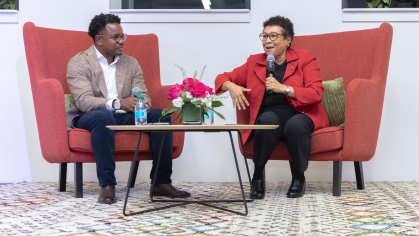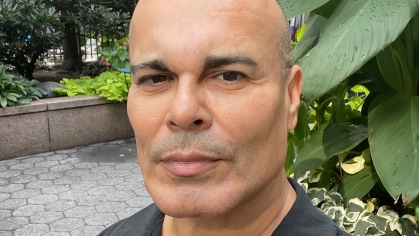Gay Life In Newark: An In-Depth Look At An Important, But Overlooked Segment Of The City's Past, Present And Future
- Rutgers-Newark Conference on Nov. 12
Rutgers-Newark has partnered with community leaders to present “Queer Newark: Our Voices, Our Histories,” a free, full-day, oral history conference examining gay life in Newark. This major program will be held in the Essex Room 231/232 of the Paul Robeson Campus Center, 350 Dr. Martin Luther King Jr. Blvd., on Saturday, Nov. 12, 2011 from 9 a.m. – 5 p.m. and will be followed by an evening of entertainment at The Coffee Cave, 45 Halsey St, from 6 – 9 p.m. Newark Mayor Cory Booker will welcome participants and guests.
“The city of Newark, New Jersey has a fascinating and well-documented history. There are studies of its rich cultural, musical, and literary legacy, its educational system, political life, religious life, immigrant roots, and history of racial conflict,” said Prof. Beryl Satter of the Federated Department of History at Rutgers-Newark and conference co-chair, “yet, there is one group whose undeniable contribution to the city’s life has rarely been the subject of historical or academic study — Newark’s LGBT community. The Queer Newark conference is a way to rectify this omission.”
Three generations of LGBT Newarkers will be on hand to reflect on their lives as LGBT people in the city of Newark. Panelists will discuss everything from childhood experiences to religion and spirituality during the moderated discussions. Community members, historians and scholars of Newark history and LGBT history and studies are encouraged to attend.
According to Darnell L. Moore, former chair of the City of Newark’s LGBTQ Advisory Commission and conference co-chair, “This conference will be the beginning of a larger, ongoing project that we hope will foster an intergenerational discussion of LGBT life in Newark. It will also be the foundation of an archive on LGBT Newark that can be used by historians and by future generations. This is a major first step towards preserving the history of LGBT Newark and bringing these voices and experiences into Newark’s broader communal history.”


